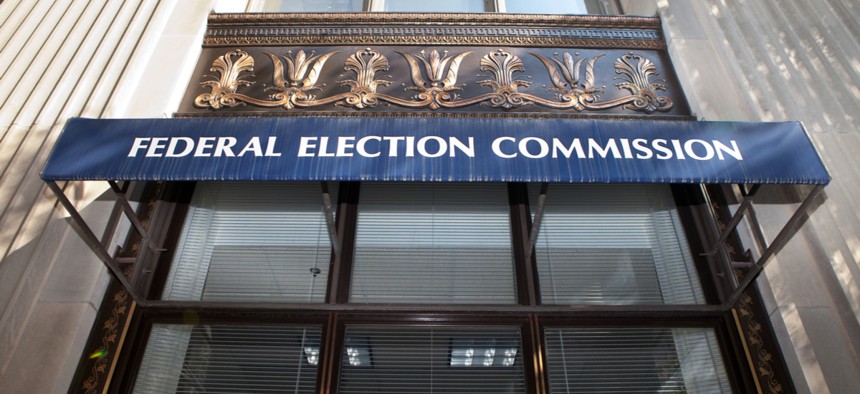FEC Gets the Ball Rolling on Online Political Ads Rules

Mark Van Scyoc/Shutterstock.com
If passed, the rules would require websites to disclose who paid for online political ads urging viewers to vote for or against a specific candidate.
The Federal Election Commission wants the public to weigh in on proposals that would shed light on the people buying political ads on Facebook, Google and other online platforms.
The commission on Wednesday unanimously voted to release two proposals that would expand disclosure requirements for internet political ads for public comment. The new regulations—the first update to online political advertising rules since 2006–would require web platforms to disclose who paid for any “express advocacy” ads, which call on viewers to vote for or against a specific candidate.
The proposed rulemaking comes after investigations revealed Russian actors purchased thousands of ads on Facebook and Twitter in an effort to interfere with the 2016 presidential election.
Though current laws already require online ads to include disclaimers, the rules for how those disclaimers should look remain ambiguous. As such, different websites treat political ads in different ways.
“The point of this rulemaking is to provide even more clarity, because obviously technology has changed,” FEC Chair Caroline Hunter said Wednesday at a panel hosted by Bloomberg. Both proposals would require all ads to include disclaimers, but they differ on how much information those disclaimers must contain.
FEC Vice Chair Ellen Weintraub asked people to “not look at [the proposals] as siloes,” and said the commission is open to new suggestions that contain different elements from both measures. The public comment period will last 60 days, and the FEC will readdress the proposals at their June 27 meeting.
While she called the new rules “a step in the right direction,” Weintraub acknowledged there will still be more work to do even if they pass. Most of the Russian-bought ads in the 2016 election didn’t fall under express advocacy, so the new regulations would not apply.
“This is a very narrow rulemaking,” she said at the Bloomberg panel. “This particular rulemaking is not going to address a lot of broader questions that are out there.”
Given the FEC’s limited jurisdiction, she said, confronting the core issues with foreign interference in U.S. elections will require congressional action. She reiterated her support for bills like the Honest Ads Act, which would increase transparency of online ads but has languished in the Senate due to a lack of Republican buy-in.
The FEC has mulled over a handful of proposals in recent years to make online ad regulation more closely mirror the rules for newspaper, TV and radio ads, but the measures never gained much traction. Weintraub attributed the most recent measure’s success to the backlash against Russian interference in the last presidential race.
“I think that we’ve reached a point where, with all the information that’s come out about foreign intervention in our elections, it becomes very hard for anybody in power to say ‘I’m not going to do anything,’” she told Nextgov in January.
NEXT STORY: 5G Faceoff on Capitol Hill






